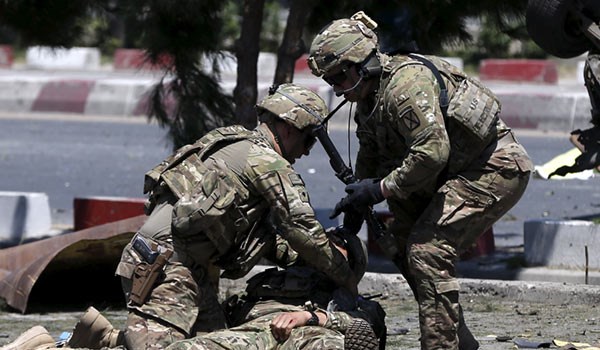
RNA - Quite the opposite, the Taliban is getting stronger all the time, and now controls more of Afghanistan than at any time since the 2001 US invasion. That control is extending in all regions of the country, with them contesting substantial portions of vital provinces, or controlling them outright. According to the most recent SIGAR estimate, 12% of Kabul is now under direct Taliban control, with another 32% of the city considered at the very least contested!
In other words, the Taliban can now contest virtually any part of Afghanistan they choose, able to make a serious run at seizing almost any city, at least temporarily, and can carry out so many simultaneous offensives that the US military cannot react to them all. This was all predictable:
- The 17th commander in Afghanistan, Austin “Scott” Miller, like so many of the generals who preceded him, claims he sees evidence of “progress” in the Afghan war. But he refuses to “guarantee you a timeline or an end date.” In a conflict with no end in sight, that is now the longest in American history, the US has not been able to score a hint of victory anywhere. That could be said as well of the rest of its so-called war on terror across the Middle East.
- War and occupation is the American bloodstream. The US didn’t invade Afghanistan to promote freedom and democracy. Profits and power are the reasons why despite 17 years of failure the War Party insists on continuing its war and occupation. Many Afghan men, women and children have lost their lives, but who cares since business is booming? Add in, as well, the issue of political credibility. No president wants to appear weak, as pulling back from a war has been the definition of weakness. Donald Trump is not an exception. He has no intention to be known as the president who lost Afghanistan, Iraq or Syria.
- Washington’s deeply embedded illusions and deceptions serve to generate and perpetuate its ill-begotten wars. In Syria, the US claims its occupying troops are freedom fighters for peace and prosperity, and have waged a brutal war to spread democracy and a better way of life. The trouble is, this particular war has only supported and spread terror groups like ISIL and Al-Qaeda. The same has happened in Afghanistan, where the presence of ISIL militants has only increased the widespread killing of innocents and massive displacement of the people across the war-torn country, while there has been an increasing body of evidence piled up by the regional states on the United States' outstanding role in transferring commanders and groups of ISIL from Syria to Afghanistan after the terrorist group lost the war in the Levant.
- Washington knows it has lost the war. That’s why its commanders play so much with weapons and training and technology and tactics and surge. These are the things they can control. But they cannot control Afghanistan and its people. These people don’t like occupiers and they won’t do America’s bidding. That is precisely why the US failed – despite having a massive embassy, regional command centers, election advisors, private security guards, military trainers and advisors, diplomats and civilian enablers.
According to Fars News Agency, as it happens, the 2001 US-led invasion of Afghanistan, far from bringing freedom to that country, sowed chaos. The invaders inadvertently lit the fire that burned down a national order. Now there is no easy American solution when it comes to Afghanistan, and unfortunately, few in Washington are willing to accept such realities. Their unwarranted optimism about the efficacy of US power will only fuel more chaos next year.
Tragic enough, Washington’s officialdom regularly and repeatedly draws erroneous lessons from the recent past surges and ignores a hard truth staring them in the face: US military action in Afghanistan – and in the Middle East - has solved nothing at all. The isolationists are unwilling to accept this. They struggle to admit failure and withdraw, staying busy with claims about being “successful” and overestimating the efficacy of American power.
A policy as such will only contribute to and create more of today’s mess in Afghanistan. It is long past time for Washington’s officialdom to reassess their militarized version of foreign policy, challenge their long-held assumptions and patriotic fables, withdraw their troops, and allow the people of Afghanistan to shape their country to their desires.
847/940